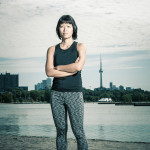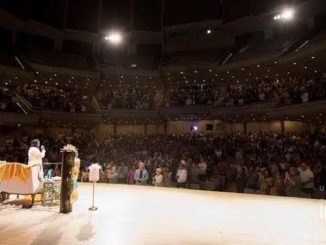I’ve had many massages in my lifetime. Two car accidents in Calgary left me with shoulder problems, which years of deskwork didn’t help. I now consider myself a bit of a massage snob. So when I say that my massage with Thai Massage Toronto’s Diana Rose was one of the best I’ve ever experienced, it means a lot.
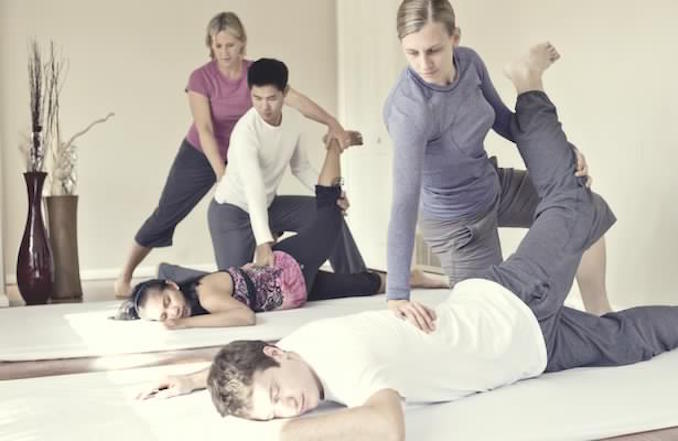
The massage started with my feet and already I could tell that Diana’s hands were magic. I usually have to tell different therapists to add more pressure or stay on a knot for longer but Diana didn’t need that kind of direction. She was very in tune with my body. When Diana found a trouble spot in my shins she spent the extra time working through the tension. The real test was the shoulder work though and I must say, she executed it perfectly. Focusing first directly on the muscles while I laid on my stomach and then through dynamic movement of my neck and arms while sitting cross-legged. The massage felt relaxing and therapeutic; at some points even spiritual as I drifted in and out of sleep in a meditative state. It really was the perfect balance and I would not hesitate to recommend Diana and Thai Massage Toronto for your body work needs.
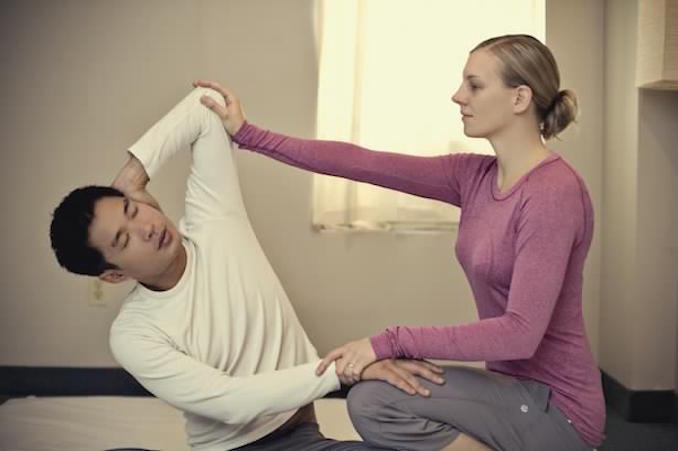
Thai Massage Toronto (TMT) School and Massage Centre was founded by Deanna Villa, an easy-going and extremely knowledgeable Master Teacher and Practitioner. TMT was the first Thai Massage School and Centre in Toronto and one of the first in North America. When Deanna first Googled Thai Massage, there were about 8 websites that came up, one school was in California and the rest were in Thailand. We can thank her for bringing the wonderful art of Thai Massage to Canada. Through her experience of practicing over 10,000 hours, Deanna has developed her own style that blends traditional Thai Massage with Restorative Yoga.
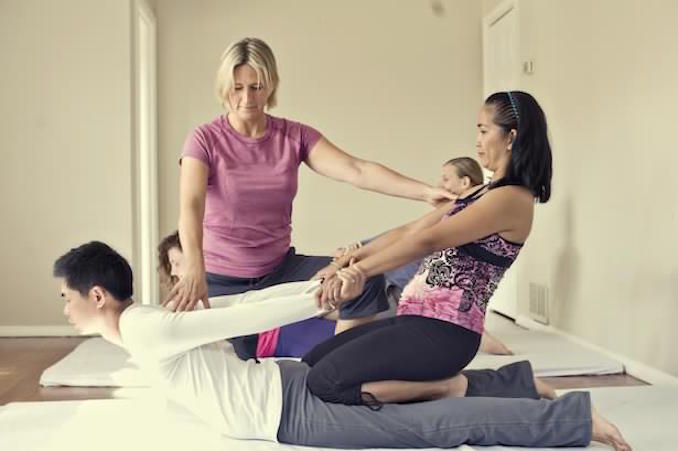
Below you will find both my interviews with Deanna Villa and Diana Rose. Visit thaimassagetoronto.com to find out more on the school or to book an appointment.
How is Thai Massage different from other types of massages like Swedish massage?
DV: Thai Massage is an ancient, healing therapy with a 2000 year lineage. Performed on a large floor mat while the client wears comfy, stretchy clothes. No oils or lotions are used. Skilled practitioners move in tandem with the client to apply passive or dynamic yoga stretching while compression techniques of palm, thumb, elbow, knee or feet are applied in a meditative rocking motion.
Thai Massage focuses on energy lines; describe what energy lines are and how they relate to tired/stiff muscles.
DV: Thai Massage focuses on pressing, stretching and balancing 10 primary energy lines called “Sen Lines.” Sen lines are similar to the meridian lines of acupuncture. Releasing tension or blocked energy along these lines allows for the free flow of vital life force or “prana” that sustains all living things. By working along the Sen lines (that generally run along muscles and tendons) tired and stiff muscles receive vital energy flow and blood flow. This free flow of energy and blood nourish muscles with oxygenated blood which is vital for recovery. Pressing and stretching the physical body along the Sen lines facilitate balancing the body’s energy system.
Who can benefit from a Thai Massage? Is it difficult for older, less mobile clients?
DV: Anyone can benefit from receiving Thai Massage. We tailor each session to focus on the immediate needs of that client at that moment. Thai Massage is a perfect therapy for improving range of motion for less mobile and older clients. Thai Massage is also performed on a massage table for those clients with mobility issues.
Is there such thing as getting too many massages?
DV: No, not with Thai Massage. You can receive Thai Massage monthly, weekly or daily. Thai Massage is multidimensional: physical, energetic and for some spiritual.
Is Thai Massage spiritual or religious in any way?
DV: In Thailand Thai Massage is first and foremost a spiritual practice steeped in ancient Buddhist tradition. In application Thai Massage is a mindful and meditative practice incorporating mindful breath, a rhythmic rocking motion and applications of compression and stretching in a meditative mood. Here in the west each practitioner would practice with their own intention.

Tell us about your Thai Massage School. How does Thai Massage training complement other disciplines?
DV: We are an accredited school. The first school & massage centre in Toronto since 2002. We offer Certification courses in Canada for those who would like to begin a career in Thai massage. Graduates are eligible to receive malpractice insurance to practice in Canada or a Metro Licence to practice in Toronto. For existing Therapists that require CE credits (continuing education credits) we have that accreditation for Canada & the United States.
“Traditional Thai massage is considered one of the fastest growing healing modalities in the world”- Massage & Bodywork Magazine.
Thai massage techniques are now integrated in the massage, fitness and yoga world, segmented and easily adapted into other modalities. One of our graduates and colleagues, Pedro Silva, a personal trainer, physiologist and fitness expert said,” Since studying and graduating from Thai Massage Toronto my practice has grown rapidly as more of my clients request Thai massage. Thai Massage’s primary benefits are increased mobility, enhanced recovery and performance. It also promotes body awareness and enhances breathing patterns which encourage relaxation. Combining these techniques to my existing disciplines has linked movement with relaxation.”
Thai Massage is an ancient healing modality that has been passed down for 2000 years; this is not a fad, this is healing from the root! Our classrooms are filled with Registered Massage Therapists, practitioners of massage, yoga, Pilates and personal trainers due to our excellent reputation in our industry as a top ranked school hosting Master Teachers, delivering high calibre curriculum with masterful teaching methods in a grounded space. We also attract a sprinkle of eager novice students moving towards a career change in their second or third career who gravitate towards this fulfilling, mindful, healing work. Caregivers, parents, siblings and couples attend our classes to experience receiving this transformative style and bring home this loving, compassionate and mindful hands on experience to positively affect the family unit.
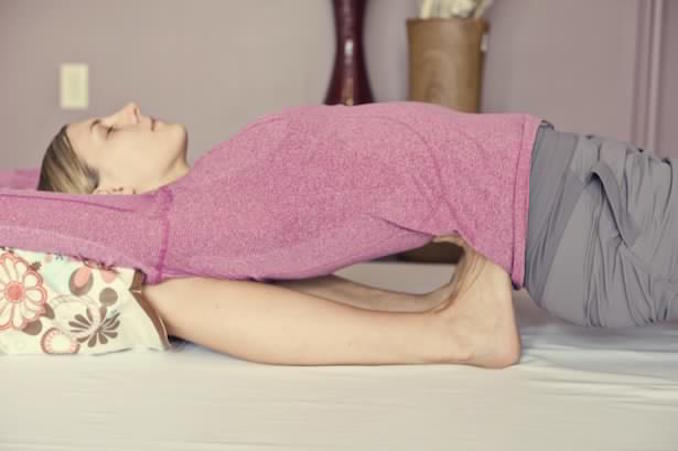
Is Thai Massage hard on the practitioner’s body?
DV: Thai Massage and massage in general or any movement therapy can be taxing on the body without implementing good body mechanics and proper skills. This is why it is so important to study with a skilled, successful teacher who has extensive experience giving Thai Massage treatments and able to cultivate and sustain a stable clientele. This way they teach from actual practical experience and they show you how to be successful and proficient without compromising your body.
Why did you start in Thai Massage Toronto?
DV: When I first began my practice my body rebelled, my back hurt with tension in my neck and shoulders. I did not know how I would proceed with this career without the pain after less than two years in this industry. I began to develop my own method, stripping back each movement to its foundation. I focused on body mechanics, alignment and how to execute postures, stretches and compression with ease. That’s why I became a teacher. I had the skills to teach from my experience in the treatment room. Now I could share with others how to proceed and succeed. I am methodical and detailed and this translates well in the classroom. Once our TMT method was evolved the school was born and a few years later we acquired our centre here at Bloor St. W. & Christie in the Annex area of Toronto.
What makes Toronto a great place to do business?
DV: There are a few things that make Toronto great for me. We are a hub for health, wellness and fitness in North America. We have access to world class teachers in our field, availability to nutritious and diverse health and ethnic foods, classes and events in ancient mindful disciplines from the east and beautiful lush outdoor spaces in the city and by the lake. We are located in Korea Town in the Annex. In the morning the business owners in Korea Town sweep the sidewalks in front of their shops. This welcoming action prepares and invites energy and activity for the business of that day. We are hosting the Pan American Games. Toronto and its people are the best!!!
What other healthy businesses do you love in Toronto?
DV: I love eating healthy and nutritious foods in the Annex area, Fresh on Bloor St. W. and Annapurna on Bathurst serve a healthy vegetarian menu. I love Yoga Space founded by Katherine Beet on Ossington.
Anything else you’d like to add?
DV: We offer Level 1 Thai Massage or Table Thai Massage classes every 6 weeks or so. Our next classes are July 24-28 or September 18-22 or attend a Level 1a workshop on a weekend as an intro. Call us @ 416.234.0011 or visit our website at www.thaimassagetoronto.com
****
How has Thai Massage changed your life? How long have you been practicing?
DR: I have been practicing for over 6 years. When I stumbled upon Thai Massage, I was dancing professionally as an independent contemporary dancer and choreographer. Dance is often quiet an egocentric profession and I was looking for a way to give back somehow, using all the body knowledge I have acquired over the years. Thai Massage has given me that opportunity. It has also opened up the possibility to connect to people in a new way and has taught me so much about how, and who, we choose to be in the world and how we relate to each other. This massage modality feels like a meditation in motion for me as a practitioner and the “art of sensing” that Deanna Villa teaches here at Thai Massage Toronto, has heightened my intuitive approach to the body. To do this body work demands a high level of awareness so I started investigating meditation further. This led me to connect with my teacher Dhyan Vimal who lives in Malaysia and has prompted me to get a travel rewards credit card.
For 4 years I balanced my Thai Massage practice and my dance career, and I feel the two informed each other beautifully. Currently I have just dedicated myself to my inner work and to these ancient healing methods. Recently I have just returned from India and had an opportunity to learn about the 18 south Indian Siddha’s and their ancient healing abilities. So Thai Massage has been a catalyst for some really profound changes for me.
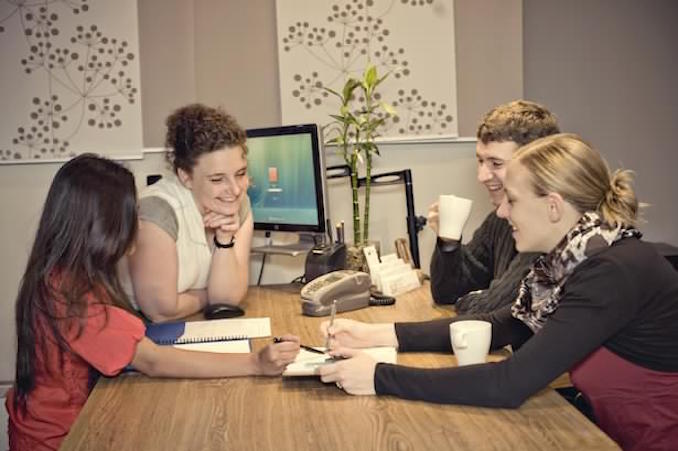
What is the most rewarding part of your job for you?
DR: The most rewarding part of my job for me is when I can truly connect with the person I am working with. When someone can trust enough to relax and be open to allowing the work that needs to happen to happen, a beautiful synergy occurs. It is difficult to describe in words but it feels like a real meeting happens. I find that is always when the most profound changes transpires. I really enjoy coming to work in this environment. We strive to create a warm, inviting space for our clients and for ourselves, so it feels like a haven in many ways. It is always rewarding to see the changes in clients that have committed to this work and I feel it is a privilege to play a role in the transformation of another.
How do you know how much pressure to apply or when to ease back on your clients?
DR: The whole basis of the teaching behind the Thai Massage Toronto method is sensing. As a practitioner that is what demands our focus and awareness. If we are not listening to what the body is saying, it can be potentially harmful. So we learn to sense where that edge is in our pressure. The body is extremely clear, it is our job as practitioners to cultivate the sensitivity to listen to what the body is saying. I feel like this is one of my strengths, and I think something that I will continue to hone and refine for as long as I am a practitioner.

